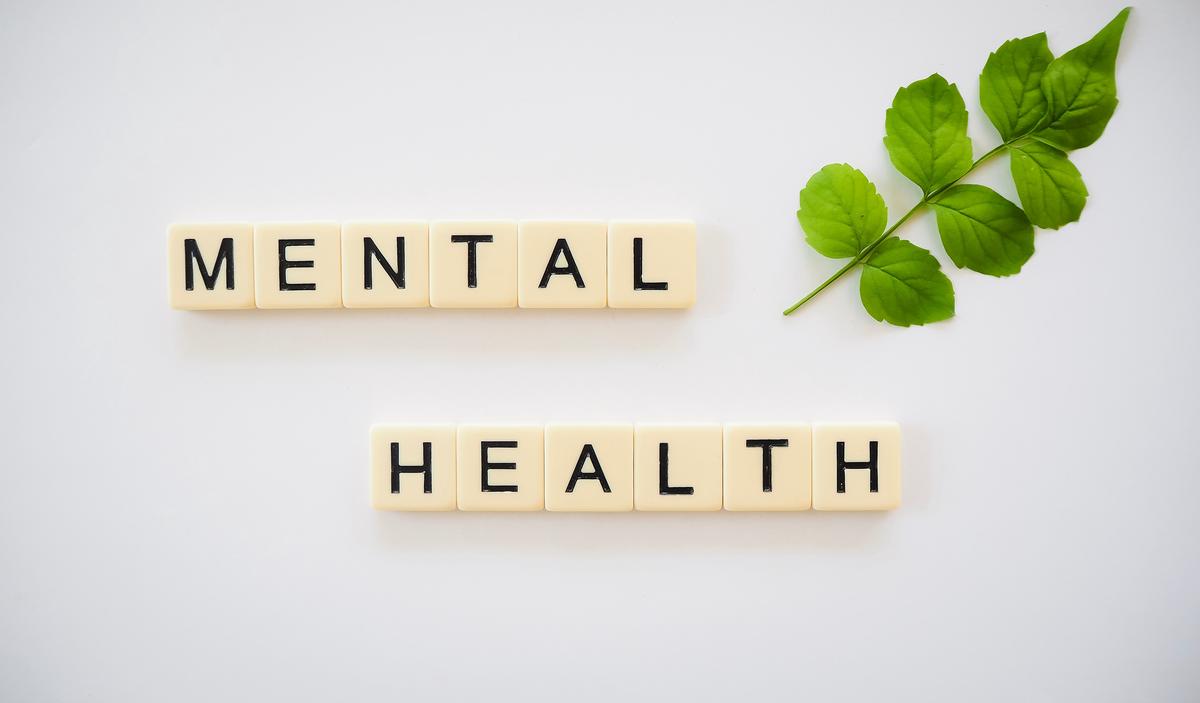The intricate web of mental health challenges spans across geographic borders, touching lives in every corner of the world. Mental health disorders are pervasive, silently weaving their way through populations, indifferent to demographic boundaries. With an eye towards empirical evidence, this narrative embarks on a quest to elucidate the epidemiological tapestry, unraveling the true scope of these disorders on a global scale. By drawing from a rich body of research, we aim to shed light on the unseen burdens carried by millions and the societal forces at play. Moreover, we scrutinize the shadow cast by stigma, an adversary to mental wellbeing, and explore the dynamic landscape of treatment advancements that herald hope for those affected. Navigating the complex interplay between policy, advocacy, and mental health, we endeavor to spotlight innovative strides towards a more inclusive and informed society that supports mental wellness for all.
Epidemiology of Mental Health Disorders
The Global Burden of Mental Health Disorders
In the realm of public health, the prevalence of mental health disorders remains a topic of critical importance, as it encompasses a significant portion of the global health burden. Mental health conditions, which include a broad spectrum of disorders such as depression, anxiety, bipolar disorder, schizophrenia, and substance use disorders, are widespread and represent a substantial challenge in both developed and developing countries.
Recent epidemiological data suggests that mental health disorders affect an estimated one in four individuals worldwide at some point in their lives. Depression stands as one of the leading causes of disability, with over 264 million people affected globally. Anxiety disorders are also pervasive, impacting approximately 284 million individuals, a figure that underscores the urgency of addressing these conditions as a matter of global health priority.
The incidence of mental health disorders is not uniformly distributed across populations or geographies; rather, multiple factors contribute to their manifestation and prevalence. Socioeconomic determinants, such as poverty and education, adverse life events, and genetic predispositions, are instrumental in the onset and propagation of these disorders. Furthermore, there is an observable age disparity, with young adults and adolescents being particularly susceptible to developing mental health ailments.
It is worth noting that the growing prevalence of mental health disorders is compounded by significant barriers to accessing mental health care. Stigma, a shortage of trained mental health professionals, and inadequate healthcare infrastructure limit the ability for many to receive appropriate treatment. Consequently, a considerable gap exists between those needing care and those who actually receive the necessary interventions.
Substance use disorders continue to escalate in prevalence, driven in large part due to the opioid crisis, particularly in regions such as North America. The intersection of mental health and substance abuse introduces an additional layer of complexity in managing these conditions, making unified strategies for prevention, diagnosis, and treatment ever more crucial.
Collectively, the data paints a sobering picture of the current state of mental health globally. As researchers and healthcare providers move forward, the emphasis needs to be placed on holistic and integrated care models, policy reform, and a destigmatization of mental illness to effectively combat the rising tide of mental health disorders. The depth and breadth of this challenge demand a response that is as compassionate as it is informed—a response that upholds the fundamental human right to mental well-being.

Impact of Stigma on Mental Health
The Stigmatization of Mental Health: A Barrier to Wellness and Recovery
As academics deeply vested in understanding the multifaceted nature of mental health, one must draw attention to the deleterious ripple effect of stigma on the lives of those suffering from mental health issues. Stigma, the societal mark of disgrace associated with mental health conditions, can lead to a myriad of adverse consequences that may exacerbate an individual’s mental health status and hinder their path to recovery.
Individuals grappling with mental health issues often confront public stigma, which manifests in the forms of negative attitudes and beliefs held by others. This social stigma can lead to prejudice, discrimination, and exclusion, impacting one’s ability to secure employment, housing, and social opportunities. Such marginalization not only compounds the stress upon these individuals, but it also perpetuates the cycle of social disempowerment and isolation.
Beyond societal rejection, stigma incites self-stigma, where individuals internalize these negative sentiments, fostering feelings of shame, diminished self-esteem, and a sense of unworth, which can impede one’s willingness and motivation to seek necessary help. Public and self-stigma together create a formidable barrier, discouraging individuals from accessing mental health services. The apprehension surrounding the judgment from others can override the dire need for professional support, leaving many to suffer in silence.
Moreover, the pervasive stigma associated with mental health extends to clinical settings, where individuals may receive substandard care due to the biases held by some healthcare professionals. This underscores the need for continuous education and training to dismantle misconceptions and encourage compassionate care that fosters trust and respect between healthcare providers and their patients.
To effectively bridge the gap in mental health care, it is imperative to undertake community education initiatives aimed at dispelling myths and fostering a more profound understanding of mental health disorders. These efforts should strive to normalize conversations about mental health, elevate the voices of those with lived experiences, and highlight the fact that mental health is an essential component of overall well-being.
Eradicating stigma is a societal imperative that requires collaborative effort across various sectors, including but not limited to, healthcare, education, media, and policy-making. The call to action is clear: society must cultivate an environment where mental health is recognized as a critical aspect of human health, and individuals are empowered to seek care without fear of judgment or reprisal.
Let it be known that the debilitating effects of stigma can be mitigated through education, empathy, and the ongoing commitment to valuing mental health on equal footing with physical health. It is within this understanding that opportunity for change and progress resides, directly impacting the quality of life for the countless individuals facing the challenges of mental health disorders.

Photo by totalshape on Unsplash
Advances in Mental Health Treatment
In discussing the vanguard of psychiatric treatment and the scientific community’s response to the mental health crisis, it is essential to consider the innovative approaches in treatment modalities and support systems.
Recent advancements in pharmacological interventions have yielded promising results, particularly in the realm of personalized medicine. The synthesis of pharmacogenomics with psychiatric care allows for a more tailored approach to medication management, significantly increasing the efficacy of pharmaceutical treatments for disorders such as depression and schizophrenia. Understanding an individual’s genetic makeup guides the prescription of appropriate medication at optimized doses to maximize benefits while minimizing adverse effects.
Cognitive Behavioral Therapy (CBT) remains a cornerstone of psychological treatment. However, newer modalities such as Dialectical Behavior Therapy (DBT) for borderline personality disorders and Acceptance and Commitment Therapy (ACT) for anxiety and depression offer enhanced flexibility and effectiveness, further broadening the spectrum of evidence-based therapeutic options.
Digital technology, too, has revolutionized mental health care. Telepsychiatry has extended the reach of mental health professionals to remote areas, effectively bridging the gap in care access. Mobile applications leveraging Cognitive Behavioral Therapy principles offer additional support and monitoring for patients, allowing for convenient self-care and early detection of relapse.
Neuromodulation techniques like Transcranial Magnetic Stimulation (TMS) have demonstrated efficacy in treatment-resistant depression. Meanwhile, research into psychedelics for therapeutic purposes is experiencing a renaissance, with early investigations into psilocybin and MDMA for post-traumatic stress disorder showing positive outcomes.
Peer support and community-based programs are also gaining momentum as essential components of comprehensive mental health care. Proven to enhance recovery and empowerment, these programs offer the lived experience perspective, which is invaluable to those navigating mental health journeys.
Collaboration between primary care and mental health services is improving with the advent of the Collaborative Care Model, which has been shown to enhance outcomes for patients with mental health conditions being treated in primary care settings. This model facilitates the timely provision of mental health services by integrating mental health professionals into primary care clinics.
The pursuit of mental health equity remains a significant challenge but is an area of intense focus. Efforts are being made to eliminate disparities in mental health care across various populations, ensuring that all individuals receive the quality treatment they require, irrespective of ethnicity, socioeconomic status, or geographic location.
These advances represent a fraction of the ongoing efforts within the scientific and medical communities. Continuous research, clinical trials, and the willingness of healthcare providers to adopt and implement new treatments and models are crucial to our collective goal: to alleviate the burden of mental health disorders and enhance the quality of life for individuals across the globe.

Mental Health Policy and Advocacy

The journey through the layers of mental health awareness and responsiveness uncovers the palpable urgency for concerted action. As we reflect on the strides made in understanding, treating, and deconstructing barriers to mental health care, it is apparent that nations and communities worldwide are on the precipice of pivotal change. The path ahead demands persistent advocacy, enlightened policies, and relentless pursuit of interventions that resonate with cultural nuances and individual needs. With continued dedication to fostering an environment where mental wellbeing is revered as an essential facet of overall health, the collective dream of an empathetic and stigma-free world can inch closer to reality. It is in our shared stories, our collective actions, and our unwavering resolve where we will find the strength to redefine the global mental health landscape.
